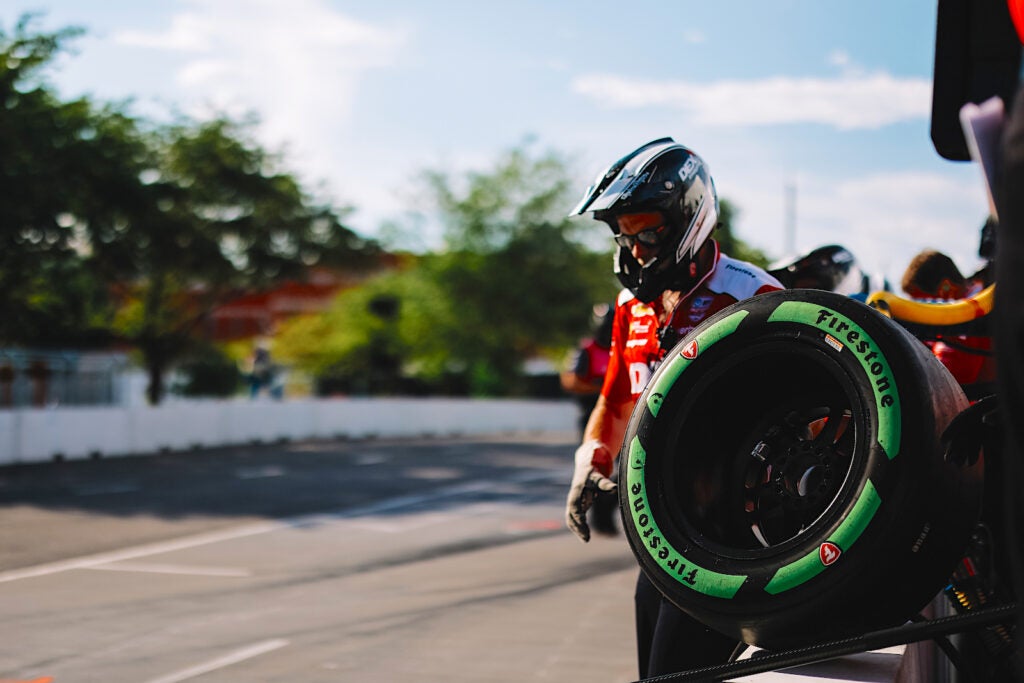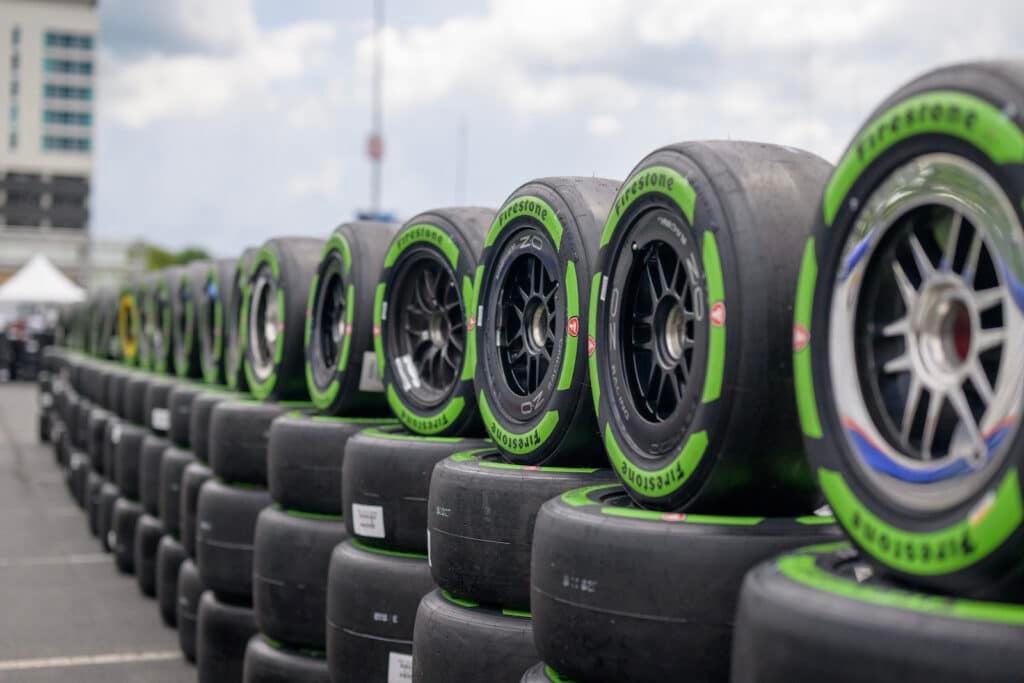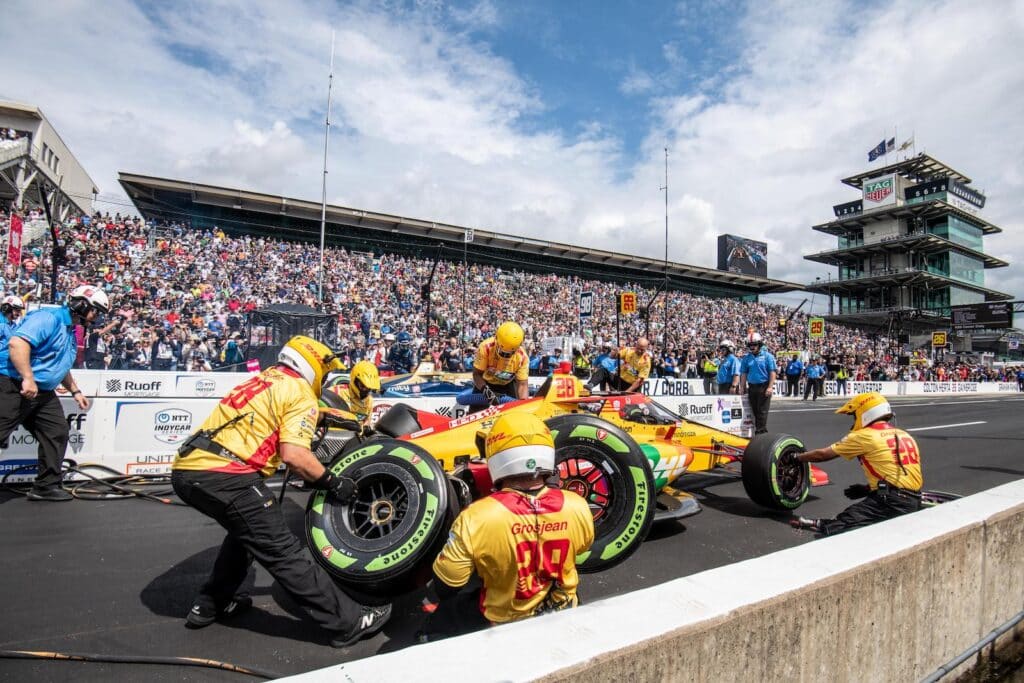Bridgestone announced new advances in their development of tire rubber based on the U.S.-sourced Guayule plant, which is native to the desert Southwest. The new rubber source is more sustainable and less damaging to ecosystems than traditional rubber harvested from equatorial sources.

Bridgestone’s Firestone brand has developed the new product into racing tires that will be used in the 2023 IndyCar racing series. The new tires will help make the upcoming season the most sustainable to date for America’s national open-wheel racing series.
“We are driving sustainability in every area of our business, and we’re thrilled to be advancing guayule and other sustainable practices in America’s premier open-wheel racing series,” said Paolo Ferrari, CEO of Bridgestone Americas.
“Firestone has a tremendous legacy of innovation and performance in racing, which we will continue to build upon as we move into this new era of cleaner, safer and more sustainable mobility on and off the track.”
Guayule tires to be used on all IndyCar street races
Bridgestone is IndyCar’s exclusive tire supplier, and the series will feature Firestone Firehawk race tires made with rubber derived from Guayule as the alternate tire in all five street circuits of the 17-race season. The tires were used at a single race last year, so the series is expanding their use.

Additionally, the majority of race tires used this season will be manufactured at Bridgestone’s energy-efficient Advanced Test Production Center (ATPC), which has now received International Sustainability and Carbon Certification (ISCC) “Plus” recognition for its transparency and traceability of sustainable raw materials.
Finally, the company will utilize ISCC mass balance certified synthetic rubber made with recycled plastics in all its race tires for the 107th running of the Indianapolis 500.
The Guayule-based Firestone Firehawk race tire will be featured as the alternative tire at the Firestone Grand Prix (March 5) in St. Petersburg, Florida, Streets of Long Beach (April 16), Streets of Detroit (June 4), Streets of Toronto (July 16) and the Music City Grand Prix (Aug 6) in Nashville, Tennessee.
In all, Bridgestone will supply more than 1900 tires using Guayule rubber in the sidewall. The Guayule plants supplying the basic rubber sap are grown on Bridgestone’s research farm in Eloy, Arizona.
What is Guayule, anyway?

“Guayule is a shrub that’s been around a very long time,” said Cara Krstolic, chief race tire engineer at Firestone. “The shrub has a lot of natural rubber in it. So the roots, the stems, the leaves, all have latex in them.
“If you compare it to some of the other crops that are being grown in these areas like cotton or alfalfa, Guayule uses about 50% of the water that those crops require. So some of these areas that are affected by climate change, increasing temperatures, or drought in general, they are able to grow this crop more easily than those other crops.”
Bridgestone launched its Guayule research initiative in 2012 when it broke ground on a processing and research center in Mesa, Arizona. Today, the company continues to operate the Mesa facility in addition to the 281-acre farm in Eloy.
To date, Bridgestone has invested more than $100 million in its efforts to commercialize Guayule. Bridgestone is also the recipient of multiple U.S. government research grants for Guayule research and development, including from the U.S. Department of Agriculture (July 2017 and November 2022) and from the U.S. Department of Energy Joint Genome Institute (September 2021).
As we reported last September, Bridgestone announced its plans to invest an additional $42 million to establish commercial operations, with additional investment and expansion toward 2030. This investment will increase capacity of up to 25,000 additional acres of farmland for planting and harvesting Guayule at scale in collaboration and partnership with local U.S. farmers and Native American tribes.
Guayule is part of Bridgestone’s plan to achieve carbon neutrality and make tires from 100% sustainable materials by 2050. The company is targeting commercial production of Guayule-derived natural rubber by the end of the decade.
- SEO Powered Content & PR Distribution. Get Amplified Today.
- Platoblockchain. Web3 Metaverse Intelligence. Knowledge Amplified. Access Here.
- Source: https://www.thedetroitbureau.com/2023/02/indycar-expands-use-of-american-grown-rubber-sources/



